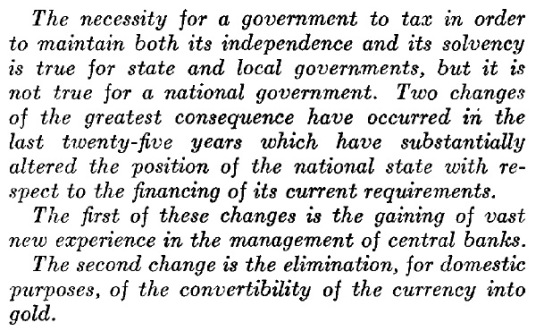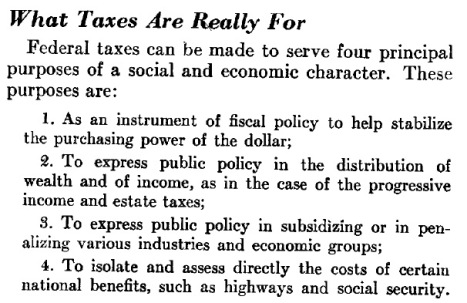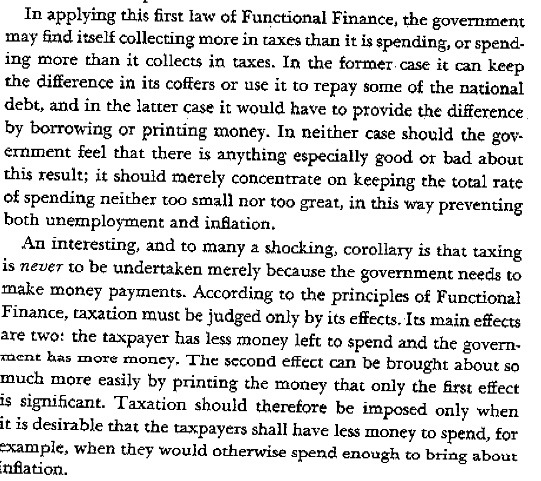Demeter
Demeter's JournalI will pencil that in
How's the mail been?
Are there bonafide Russian troops invading Ukraine? or is it more of the same old convict by accusation we've been subjected to here?
Honestly, it's a war against truth, more than anything else, truth and property rights.
Weekend Economists Celebrate Endless Summer August 29-September 1, 2014
Yes, we are going into Summer, the Sequel. Because it's finally warm enough to call it summer, again...
Tansy mentioned Bruce Brown, film maker of the Surfing genre...
Brown's films include Slippery When Wet (1958), Surf Crazy (1959), Barefoot Adventure (1960), Surfing Hollow Days (1961), Waterlogged (1962), and his most well known film, The Endless Summer (1964) which received a nationwide theatrical release in 1966. Considered among the most influential in the genre, The Endless Summer follows surfers Mike Hynson and Robert August around the world. Thirty years later Brown would film The Endless Summer II with his son in 1994.
He has also made a number of short films including The Wet Set, featuring the Hobie-MacGregor Sportswear Surf Team and one of the earliest skateboarding films, America's Newest Sport, presenting the Hobie Super Surfer Skateboard Team. These short films along with some unused footage from The Endless Summer were included in the DVD Surfin' Shorts, as part of the Golden Years of Surf collection. Brown has gone beyond surfing a few times with films about motorcycle sport, On Any Sunday (1971) which is held in high regard as one of the best motorcycle documentaries of all time, On Any Sunday II (1981) Baja 1000 Classic (1991), and On Any Sunday, revisited (2000). He made a guest appearance in the SpongeBob SquarePants episode SpongeBob vs. The Big One.
Brown is a 2009 inductee into the Surfers' Hall of Fame in Huntington Beach, California.
---wikipedia
http://encyclopediaofsurfing.com/entries/brown-dana
As with so many things, I was just an infant when all this was going on, so if I get something wrong, please correct!
 https://2.bp.blogspot.com/_vu5GdfwqBYo/S9DKH2CUa5I/AAAAAAAAAn0/dVID626nje4/s1600/On+Any+Sunday_2.jpg
https://2.bp.blogspot.com/_vu5GdfwqBYo/S9DKH2CUa5I/AAAAAAAAAn0/dVID626nje4/s1600/On+Any+Sunday_2.jpg
Weekend Economists Make War on Charlie Wilson August 22-24, 2014
You may have seen "Charlie Wilson's War" the adventure-comedy starring Tom Hanks and Julia Roberts. Frankly, I couldn't even watch the whole trailer, when it opened. The term "amiable dunce" may have been coined for Ronald Reagan by Clark Clifford, but I think it could equally apply to the former congressman, from Texas (of course), who found true love by funding the Afghan mujahideen during the Soviet invasion, thereby creating Al Quaida and bringing Osama binLadin to our national attention.
Charles Nesbitt "Charlie" Wilson (June 1, 1933 – February 10, 2010) was a United States naval officer and former 12-term Democratic United States Representative from Texas's 2nd congressional district.
Wilson is best known for leading Congress into supporting Operation Cyclone, the largest-ever Central Intelligence Agency (CIA) covert operation which, under the Carter and Reagan administration, supplied military equipment including anti-aircraft weapons such as Stinger antiaircraft missiles and paramilitary officers from their Special Activities Division to the Afghan Mujahideen during the Soviet war in Afghanistan. His behind-the-scenes campaign was the subject of the non-fiction book Charlie Wilson's War: The Extraordinary Story of the Largest Covert Operation in History by George Crile III and the subsequent film Charlie Wilson's War starring Tom Hanks as Wilson....
 photo circa 1995
photo circa 1995
https://en.wikipedia.org/wiki/Charlie_Wilson_%28Texas_politician%29
This is his story, her story, Afghanistan's story, USSR's story, our story. We will try to piece it together: the good, the bad, the ugly, the stupid, and the consequences.
And for our accompanying culture tidbits, we will play upon the concept that "it takes two to tango". Charlie would never have gotten the idea if he weren't pursuing the indomitable Joanne King Herring, whom we will also delineate.
So, pick music that features some concept of "two". I'll start with Shostakovich's "Tahiti Trot":
Tahiti Trot, Op. 16, is Dmitri Shostakovich's 1927 orchestration of "Tea for Two" from the musical No, No, Nanette by Vincent Youmans.
Shostakovich wrote it in response to a challenge from conductor Nikolai Malko: after the two listened to the song on record at Malko's house, Malko bet 100 roubles that Shostakovich could not completely re-orchestrate the song from memory in under an hour. Shostakovich took him up and won, completing the orchestration in around 45 minutes.
Tahiti Trot was first performed in Moscow on 25 November 1928, and has been a popular encore ever since. It was used as an entr'acte for the ballet The Golden Age at the suggestion of conductor Aleksandr Gauk.
And, since Joanne King Herring was born in 1929, it all ties together...
Philip Pilkington: Taxation, Government Spending, the National Debt and MMT
http://www.nakedcapitalism.com/2014/08/taxation-government-spending-the-national-debt-and-mmt.html?utm_source=feedburner&utm_medium=email&utm_campaign=Feed%3A+NakedCapitalism+%28naked+capitalism%29The other day my friend Rohan Grey — a lawyer and one of the key organisers behind the excellent Modern Money Network (bringing Post-Keynesian economics to Columbia Law School, yes please!) — directed me to an absolutely fascinating piece of writing. It is called ‘Taxes For Revenue Are Obsolete’ and it was written in 1945 by Beardsley Ruml. Ruml was the director of the New York Federal Reserve Bank from 1937-1947 and also worked on issues of taxation at the Treasury during the war.
The article lays out the case that taxation should not be focused on revenue generation. Rather, Ruml argues, it should be thought of as serving other purposes entirely. He writes:

Basically Ruml is making the same case that the Modern Monetary Theorists (MMTers) make: a country that issues its own sovereign currency and is unconstrained by a gold standard does not require tax revenue in order to fund spending. This is because the central bank always stands by ready and able to buy any sovereign debt issued that might lead to the interest rate rising. Indeed, it does this automatically in the way that it conducts its interest rate policy. Ruml then outlines what taxation is really for in such a country.

This is a fantastic summary and I really couldn’t put it better myself. The interesting question, however, is why people were making such statements at this moment in history? It should be remembered that the economist Abba Lerner had published a paper entitled ‘Functional Finance and the Federal Debt‘ just two years earlier which made a very similar case. In that classic paper he wrote:

So, what was it about this moment in history that allowed for such a clear-eyed view of government spending and taxation policies? The answer is simple: the war. World War II allowed economists, bankers and government officials to see clearly how the macroeconomy worked because the government was basically controlling the economy. World War II was perhaps the only time in history when capitalist economies were run on truly Keynesian principles. (You can make a case that the Nazi economy in the 1930s was also run on these principles, however, so perhaps it is better to say: a capitalist economy in a democratic state).
FASCINATING, EDUCATIONAL....MUST READ!
And that's the other aspect of this Elitist paradigm
It's hard to imagine that such smart great thieves and crooks as we have in this country, stealing all the money and hoarding it,
produce such stupid and uneducated offspring as to think this massive exploitation of theirs is going to work
...or the alternate plan, which is robotic minions, without provision for producing and repairing and designing and mining the raw materials and...to make the minions!
There is this annoying trend in Ecomonists and their Elitist Overlords
to look at some artificial, statistical result or index: housing market, GDP, stock prices
and think that the underlying fundamentals: wage levels, job prospects, entry costs
have nothing to do with these indices of outcomes.
Then they try to goad, bribe and beat the artificial, derivative numbers into submission to their will.
Since the artificial indices are created by the underlying fundamentals, which are starved to death, literally, all the stimulus in the world will not move those indices a jot. but they keep trying.
How does that definition of insanity go?
Weekend Economists Letters to Nowhere August 15-17, 2014
NPR had this exciting book review this week:
Hampton Sides: "In the Kingdom of Ice"
... Bestselling author Hampton Sides has a new book. It's all about an epic naval expedition in the late 19th century to reach the North Pole. Thirty-three men journey north of the Bering Strait in a wooden ship and become marooned on an ice cap almost a thousand miles north of Siberia.The title of the book is "The Kingdom of Ice." (sic) And author Hampton Sides joins me in the studio...You know, so few people really know about this story. What prompted you to delve?
SIDES
Well, yeah, I'd never heard of it before. And no one I knew had heard of it before. I went to Oslo, Norway to write a story for National Geographic about another explorer who had tried to sort of duplicate the voyage of the Jeannette in a different kind of vessel. This was Fridtjof Nansen. And at the museum there in Oslo, you see references to the Jeannette, the Jeannette and DeLong, this American voyage. And I'm an American, never heard of it before, filed that away, decided to dig a little deeper...Great characters, amazing primary documents, kind of now obscure but then very, very well-known bit of a sensation, kind of internationally known story, so I thought, you know, this is something. I'm going to follow this. And it's been about four years of travel and research and reading, and it's finally out.
You say the world at the time was kind of obsessed with Arctic fever.
Yeah. Yeah. I talk about that in the early part of the book. Just how little was known about what was up there and what a kind of nagging, gnawing obsession that it bothered people...
And the myths that were out there.
Yeah. Right. I mean, there's a lot of crazy ideas or what we would now think are crazy, some of them going back to the Greeks and the Vikings and the early Mercator maps that showed things like an Open Polar Sea and sea serpents and tropical islands up there, Hyperborea -- the Greeks had this place -- ultima Thule, these -- all these concepts kind of swam in our imagination.
But when we discovered how powerful the Gulf stream was and that it moved north from the tropics past Norway, that began to get some of the scientists thinking that what's really happening here is that these thermal currents are tunneling under the ice, creating kind of a gateway to this Open Polar Sea and that the planet has this sort of beautiful and symmetrical way of regulating its own heat.
So this expedition, the Jeannette expedition, was really designed to test this idea of a gateway to the Pole that's made by a thermal current, in this case, a Pacific Ocean current called the Kuroshio (sp?) that was believed to tunnel through the Bering Strait and north into the ice pack.
Well, Gordon Bennett was one of the just outlandish Gilded Age characters. And I really wanted to write about the Gilded Age, a time of really great facial hair, a time of unbelievable sums of money now being made by certain individuals. And he was one of them. He was the third richest man in Manhattan. He was the publisher and owner of the New York Herald, which was the largest newspaper in the world at that time. And he was a lover of spectacle and sports and adventure. He believed that you shouldn't just cover the news.
You should create spectacles that would generate more and more copy. He had sent Stanley to Africa to find Livingston or "find Livingston" -- in quotes -- because Livingston wasn't exactly lost. But he had enjoyed with his newspaper such enormous success with the Stanley Livingston dispatches that he decided it was time to do something even bigger. And so he wanted to bankroll an expedition to the North Pole, pay for it entirely himself in order, yes, to generate more copy for his paper, but in the name of science and also, you know, just because he was a great lover of spectacle and adventure. And he was a believer in some of the ideas of a scientist who believed deeply in this Open Polar Sea theory... the naval lieutenant, George Washington DeLong, who apparently planted the idea in Bennett's head is the hero of the story. He's the captain of the ship. He was a young ambitious naval officer, graduate of the naval academy. He had just missed the Civil War by a few months and was, I think, burning with a desire to kind of make up for lost time and do something especially big and ambitious. He had been to Greenland on an earlier expedition and had fallen in love with the Arctic, and something about the atmosphere and the just grandeur of this wilderness. And he became sort of addicted to this puzzle of what's up there, how does it work, what's at the attic of the planet?
So he knew he was going to go back, and he really began carefully plotting an expedition and reading everything he could get his hands on, kind of imbibing, you know, all the theories of what's up there and made this decision that the way to go was by way of Bering Strait 'cause all the attempts thus far had been through or around Greenland. So now it's like, let's go west, and let's go through the Bering Strait. There was a lot of interest in that part of the world, partly because no one had really been there and also because we had recently purchased Alaska from the Russians.
Hampton Sides is author of "Ghost Soldiers," "Blood and Thunder," and "Hellhound on His Trail." He is an editor-at-large at Outside magazine and a frequent contributor to National Geographic magazine.
An excerpt of his latest book: In the Kingdom of Ice: The Grand and Terrible Polar Voyage of the USS Jeannette, is available at above link.
Audio link: http://thedianerehmshow.org/audio-player?nid=19678
http://www.amazon.com/In-Kingdom-Ice-Terrible-Jeannette/dp/0385535376%3FSubscriptionId%3D0EP44N4Z8Y93MBZ1ZC82%26tag%3Ddianerehm-20%26linkCode%3Dxm2%26camp%3D2025%26creative%3D165953%26creativeASIN%3D0385535376
There's a way to talk to women who don't know you from Jack the Ripper, and that ain't it.
Came home, phone rings....caller id shows some woman's name, don't know her, but figure I'll pick up. And it's some man asking me who I am! And when I ask him, as the caller, to identify himself, he just goes on in this ass-chewing manner, and I hang up.
He's calling about the newspaper I deliver, but can't be bothered to leave a real message, just a threat to call the paper. I could give a care. Telephone etiquette was well understood at his age...and he sounds older than me, and arrogant. Let him call the paper.
There's a way to talk to women who don't know you from Jack the Ripper, and that ain't it.
It's a Fascist Oligarchy, masquerading as a democratic republic
and I don't know how to fix it;
we'd have to form a dominant People's Party, capture the legislature and executive branches on state and federal level, impeach all the courts, and rewrite the Constitution and the tax code to prevent Big Money from taking over again...
"Humanitarian Emergency" Does Not Suspend the Constitution on War Powers
http://www.truth-out.org/opinion/item/25481-humanitarian-emergency-does-not-suspend-the-constitution-on-war-powers... every time the President - this President or any President - is allowed to "cut corners" on the Constitutional question of Congressional war powers, it sets a bad precedent for the future, eroding a key Constitutional, democratic speed bump against unnecessary wars of choice. And every time the President - this President or any other - succeeds in tearing a hole in the Constitutional and democratic fence that the Framers wisely constructed to try to impede the President - any President - from launching unnecessary wars of choice, it's a key responsibility of people who want choosing war to be as hard as it should be to try to rebuild the fence.
In the case of Libya 2011, the Administration tore a huge hole in the fence. In the case of Syria 2013, Congress substantially repaired and strengthened the fence. Now the Administration is again attacking the fence. Regardless of what you think about what has happened so far on the ground in Iraq, to preserve this key tool for preventing wars in the future, we need to defend the fence now.....I strongly suspect that the Administration delayed this military action until Congress went on recess (and perhaps also until there was a ceasefire in Gaza, no doubt a reason that the Administration was pressing Israel for ceasefire, to clear the stage, to avoid conflation of the US and Israeli military actions in the Arab world.)
But it's not like recess appointments. There is no provision in the Constitution for a "recess war."
Consider:
MORE AT LINK
Profile Information
Gender: FemaleHometown: Ann Arbor, Michigan
Home country: USA
Member since: Thu Sep 25, 2003, 02:04 PM
Number of posts: 85,373